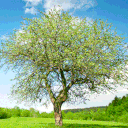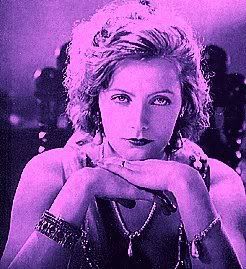 well-temperedforum.groupee.net
well-temperedforum.groupee.net  The Well-Tempered Forum
The Well-Tempered Forum  Off Key
Off Key  Who is WOKER than Whom? Words used/not used and by whom
Who is WOKER than Whom? Words used/not used and by whomGo  | New  | Find  | Notify  | Tools  | Reply  |  |
Minor Deity |
Test yourselves. What words do you use? Al, you might enjoy this.
| ||
|
| czarina Has Achieved Nirvana  |
As a writer, I object to some of the idiocy around "woke" language--a lot of it deserves the mockery it receives. There are words that really are pejorative--"spaz" for certain. "retard" (not on the list) is another example. Those are words used by bullies, not civil people. But go to any Indian reservation near me and the locals call themselves "Indians", not "Native Americans". One friend who fits the description says "a half-breed is what I am--nothing wrong with that." Do the Romany people object to the word "Gypsy"? I think the groups referred to should be able to decide for themselves what they are called. I've had people ask me if being called a Jew is a pejorative. Well, no, unless you think there is something hateful about being Jewish. Another weirdness is people referring to a husband as pregnant. An impossibility. I was also truly mystified by the revelation that some trans men get pregnant. If they transitioned to being men, why would they want to be pregnant?? I prefer language to be as rich as possible, and it should be possible to be respectful while saying most of what is on this quiz.
| |||
|
| Beatification Candidate |
You're right, Amanda. Taking the quiz was interesting because it didn't attempt to directly assert any answer was right or wrong. I knew when I was choosing that some of my choices would be on someone's "bad words" list. The commentary that followed and that linked the answers to different groups was more enlightening. For some words, I thought I was in good company. Others were more problematic and some (I think) are context-dependent. One example would be powwow. I knew when choosing it as a word I would use that I would fall on someone's bad list but I use it in a specific context - the annual self-named powwow of regional Indian tribe members (native Americans? indigenous peoples?) that occurs annually in my area. I recently stumbled across a 13 page list of words/phrases to be avoided and recommended alternatives that was attributed to Stanford University and supposedly republished in the Wall Street Journal. Included were quite a few that I still commonly use. I can't say that I should be whipped for using them because that is one of the words to be avoided. Big Al
| |||
|
| Unrepentant Dork Gadfly |
I can’t read the article (paywall) but as an elementary teacher who is passionate about anti-oppressive education, I take the language I use very seriously. I would never, ever use the word “Indian” to describe an Indigenous person. And, here in Canada, “Native” is also a term which isn’t appreciated. Indigenous is the accepted term (if you don’t know which community a person belongs to) but it’s better to, when speaking about one person, use the specific. For example, I refer to a friend of mine as Anishnaabe or being from Bkejwanong, or, depending on why we are discussing her, as an Ojibwe speaker. Why? Because that is how she introduces herself. But if I am speaking about a group, I use whichever term is the most specific but also includes everyone. That is often Indigenous, but may also be Inuit, First Nations, or Metis. There is also a huge debate about person-first language, especially in the autistic community. Many advocates say that using “person with autism” is more respectful. However, when you talk to autistic adults they are more likely to say their preference is to use “autistic” since it is such a huge part of their identity. I use “autistic” because of this, but if I was working with a child or parent who wanted us to use “person with autism” I would certainly make that change in relation to that specific person. Basically, I ask when I can and will use my most recent learning when I am unable to ask or when I am talking about a group. I work hard to stay on top of it because it’s pretty much the very least I can do as a white, middle class person with heaps of privilege.
| |||
|
Minor Deity |
I hear you, Dol. In general, I believe as I have since - forever - that people should be called what they want to be called*. That extends not just to ethnic/racial groups but groups distinguished by a disability or particularity which puts them in some minority. There DOES, however, seem to be a marked distinction between what such groups call themselves among others of like type and what they prefer to be called by others. I do my best to accommodate in the spirit of respect though sometimes it's come back to bite me (recalling my Native American boyfriend who was vastly amused at my using that term when he referred to himself - and so did his like peers among themselves - not just as Indians, but "Injuns".) That was really pushing it, and inviting offense if it's not used seems ridiculous. I don't even know how to pronounce it. Reminds me of the renaming of the "person formerly known as Prince' and Elon Musk's youngest child. (Yes. I know, he's simplified it). When things get too fine-tuned, it can get really hard. (Most of us have or acquire some characteristic which makes us belong semantically to a particular sub-group, if relevant to a discussion - or, for that matter, relevant to how we are dealt with for legal or medical purposes. Dealing with (and reading about) people with various disabilities and/or birth defects, it seems that - when asked - how they want to be perceived and referred to, they invariably say "as a regular person'. "I want others to see that I'm 'just like them', that I have the same feelings and needs." This is understandable in that they want their basic humanity to be recognized, but when such replies are forthcoming from someone who has striking differences in appearance and function, that becomes difficult. (For example, there are many You-Tube interviews by deeply compassionate interviewers, which are fascinating and support-evoking.) Respecting their humanity, anyone's humanity, doesn't mean pretending there aren't real differences in ones life experience which may need to be alluded to in dealing with them. (Check out the extraordinary You Tube videos by Chris Ulmer)
| |||
|
Minor Deity |
Sometimes it seems everyone (newly aware of the power of language and labelling) is jumping on the bandwagon of requiring ever more sensitive ways of describing their special characteristics. For instance, I don't especially like the words for my age demographic: (old, senior, elderly) but I'd never think of demanding to be referred to as a "person of age"! When it comes to fine-tuning terms describing gender issues, I have a serious problem. If the majority of pregnant and/or breast-feeding people are women, then let it be acknowledged when referencing them. If there's an exception, because a transgender man decides to bear a child (taking advantage of their remaining reproductive organs), fine, but that doesn't mean taking umbrage if they aren't referred to as a "pregnant person" instead of a "pregnant man". I'm growing ever more sympathetic to the plight of transgender people as I am exposed to them (in their own words), their pain and trauma, but the circumlocutions in describing their and other gender-variant people seem to have become too demanding. Likewise, with other rarer self-identifications. I still can't remember all the initials distinguishing people whose sexual identity doesn't fit into the usual two-gender (CIS) categories. There's also the adjective versus noun issue in identifying a sub-group. I'm all in for that if it's not too linguistically tortured. That brings the focus on the personhood of the individual instead of making their idiosyncratic characteristic their primary identity. That's not always possible, though, besides which as Dol said, there are differences within a community such that individuals may have different preferences ("autistic" vs "person with autism".) Ever since my spinal surgery left me with a limp and gait impairment, I've been struggling with the term "disabled" or "handicapped". I prefer to refer to myself as "having a mobility impairment". Others, may find personal ways of identifying their idiosyncrasy in whatever context it's relevant. We just can't ALL go around inventing new identifiers, though! As long as no insult or put down is intended, I think we need to simplify our use of language in regards to group characteristics. Respect is the key filter to terminology decisions. Beyond that, well, life is complicated enough!
| |||
|
Minor Deity |
Right. (And hey, what about that doofus, George Santos, who in disclaiming he had claimed to have Jewish heritage, stipulated that he'd said he was "Jew-ish" rather than Jewish!) When we get into the world of the hyphen, nuances of identifiers can be infinite.
| |||
|
| Powered by Social Strata |
| Please Wait. Your request is being processed... |
|
 well-temperedforum.groupee.net
well-temperedforum.groupee.net  The Well-Tempered Forum
The Well-Tempered Forum  Off Key
Off Key  Who is WOKER than Whom? Words used/not used and by whom
Who is WOKER than Whom? Words used/not used and by whom